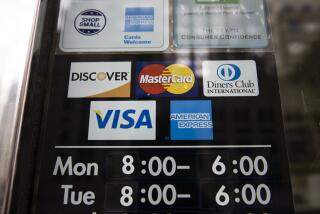$8 Billion in Mortgage Overcharges Seen
NEW YORK — Borrowers have been overcharged as much as $8 billion on adjustable-rate loans, partly due to miscalculations by underpaid high school graduates hired to service the loans, industry experts say.
The government is probing allegations that simple errors at savings and loan institutions resulted in billions of dollars in overcharges on mortgages and consumer loans over the past decade.
Interest in the problem has burgeoned since the Federal Deposit Insurance Corp. acknowledged this week that accounting errors may cost it a few million dollars in refunds to customers of failed thrifts.
One study has pointed to potential refunds of $8 billion on about $463.5 billion of thrift loans. The thrifts also could be fined $7 billion for violating disclosure requirements of the Truth-in-Lending Act, industry sources said.
Senate Banking Committee Chairman Donald W. Riegle Jr. (D-Mich.), in a letter to Resolution Trust Corp. Chairman L. William Seidman on Friday, called the overcharges “troubling.” The RTC is charged with disposing of insolvent thrifts.
“First, of course, I am concerned that consumers may have been significantly overcharged by numerous institutions. Second, I am concerned that the RTC may face large liabilities as a result of the need to refund such overcharges,” Riegle wrote.
Riegle asked the RTC a number of questions on the issue, including whether the overcharges occured, how money could be returned to consumers, the extent of the government’s liability, and whether the overcharges were common among thrifts.
Auditors said loan-servicing employees were often on the same level as bank tellers, and the errors resulted because of the numerous adjustments in the loans. Faulty computer programming was also cited.
The interest rates on adjustable-rate loans are fixed periodically, typically once a year.
“Sometimes the numbers are not rounded right, sometimes they don’t pick the right index value, use the wrong index, add the improper margin or forget to do changes,” said attorney Robert Chamness, who specializes in the loans at McKenna, Conner & Cuneo, a San Francisco law firm.
“I myself was a mortgage banker for four years and I was burned,” said John Geddes, president of Zugos Corp.
He sparked an ongoing government investigation into errors in adjustable-rate mortgages by studying the loans at both insolvent and healthy thrifts.
David Ginsburg, president of Loantech Inc. in Gaithersburg, Md., said he found errors on about one-third of the loans he reviewed and his clients had recovered amounts from $300 to $9,000 since 1985.
Typically, borrowers are overcharged $20 to $40 a month for a year or more, he said. The amount is greater on the West and East coasts, where homes are more expensive.
“No lender out there is immune from this,” he said.
Auditing firms are now gearing up to tap a huge potential market for identifying widespread errors in the loans and recovering money for homeowners.
Thrifts, banks and mortgage banking firms often hire auditors to make sure the loans they buy from other institutions are not faulty and that documents are in order.
But despite the audits, Steve Lowe, a Washington-based auditor with Univest Financial Corp., estimated that 10% to 20% of the secondary mortgage market could be affected by mistakes, mostly on loans made before 1985.
“Investors would also want to make sure the loans were serviced properly in the past and are not going to cause problems in the future,” said Ginsburg.
Home buyers, who had trusted banks to adjust their loans properly, also will want to check for overcharges, Ginsburg said.
More to Read
Inside the business of entertainment
The Wide Shot brings you news, analysis and insights on everything from streaming wars to production — and what it all means for the future.
You may occasionally receive promotional content from the Los Angeles Times.










